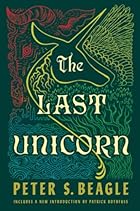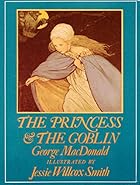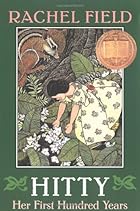 The Last Battle, by C. S. Lewis
The Last Battle, by C. S. Lewis
Reason for reading: This is the seventh (and final) book in the Chronicles of Narnia, which I've been reading in order-of-publication. I plan on rereading them all in chronological order using Planet Narnia: The Seven Heavens in the Imagination of C. S. Lewis, by Michael Ward as a guide.
Review The final book in The Chronicles of Narnia depicts the apocalypse of Narnia. When a shrewd monkey teams up with Calormen to trick the Narnians into thinking Aslan has returned - and they are his spokespeople - Narnia is cut to ruins. Forests are destroyed, Narnians begin to doubt Aslan, and cities fall to heathen invaders. I'm afraid to say this was my least favorite of the Narnia books (though I still liked it quite well!). Intellectually, I know Lewis had to have an apocalypse - whatever begins must also end - but it was still a bit dreary. So although I understand why the apocalypse had to come, I still liked the other books so much better. Not only because they were much more cheerful, but also because they had more fun-filled adventure.
The final book in The Chronicles of Narnia depicts the apocalypse of Narnia. When a shrewd monkey teams up with Calormen to trick the Narnians into thinking Aslan has returned - and they are his spokespeople - Narnia is cut to ruins. Forests are destroyed, Narnians begin to doubt Aslan, and cities fall to heathen invaders. I'm afraid to say this was my least favorite of the Narnia books (though I still liked it quite well!). Intellectually, I know Lewis had to have an apocalypse - whatever begins must also end - but it was still a bit dreary. So although I understand why the apocalypse had to come, I still liked the other books so much better. Not only because they were much more cheerful, but also because they had more fun-filled adventure.
However, despite my misgivings about uplifting-yet-dreary endings, I want to address Philip Pullman's opinions about the Narnia series (which I first mentioned in my blog post about The Amber Spyglass). WARNING: This commentary will have spoilers for the Narnia series! In his 1998 article in The Guardian, The Darkside of Narnia, Pullman stated his opinion about the Narnia series: “there is no doubt in my mind that it is one of the most ugly and poisonous things I've ever read.” Pullman is an atheist, and he believes that the being-dead-in-Heaven-is-better-than-being-alive-on-Earth philosophy is "life-hating." It is unsurprising, therefore, that he feels The Last Battle is "one of the most vile moments in the whole of children's literature." Happily, I disagree with his anger at this belief in Heaven. Even though I found The Last Battle to be a bit dreary, I appreciated the message of love and Heavenly gift that Lewis was portraying.
Pullman continues to say:
But that's par for the course. Death is better than life; boys are better than girls; light-coloured people are better than dark-coloured people; and so on. There is no shortage of such nauseating drivel in Narnia, if you can face it.
I agree that Narnia conveys some rather sexist and ethnocentric views, but that's what English literature of that period was like. Lewis (and the Narnia books) are a product of their time.
I don't think any of those arguments is strong enough to merit my discussion alone. The reason I felt moved to discuss Pullman's opinions are in this paragraph (which I unfortunately read before completing the series):
And in The Last Battle, notoriously, there's the turning away of Susan from the Stable (which stands for salvation) because "She's interested in nothing nowadays except nylons and lipstick and invitations. She always was a jolly sight too keen on being grown-up." In other words, Susan, like Cinderella, is undergoing a transition from one phase of her life to another. Lewis didn't approve of that. He didn't like women in general, or sexuality at all, at least at the stage in his life when he wrote the Narnia books. He was frightened and appalled at the notion of wanting to grow up. Susan, who did want to grow up, and who might have been the most interesting character in the whole cycle if she'd been allowed to, is a Cinderella in a story where the Ugly Sisters win.
When I read this paragraph, I wondered what Lewis actually did do with Susan in the book. But when I read the book, I interpreted those events differently than Pullman: Susan wasn't allowed into Heaven at that time. It was made clear that Susan was in one of the silly stages of life, but it was just a stage. She still had a chance to grow out of it. She hadn't been rejected from Heaven permanently, and it wasn't her time to die. Susan lived. And Susan had the ability to change (just as Pullman points out). Lewis wasn't saying that grown-ups can't go to Heaven. After all, the kids' parents went to Heaven, didn't they? Lewis was saying that Susan was in a phase where she idolized material things - and had thus turned away from her spiritual health.
Also, I'm not certain Susan really is the most interesting character. By Pullman's definition (he-who-changes-is-most-interesting) I believe Eustace's character developed much more than Susan's character. Why is Pullman ignoring Eustace?
What do other people think about Susan's character? Do you think Lewis meant for her to be denied Heaven permanently?
 Chi's Sweet Home (Volume 1), by Kanata Konami
Chi's Sweet Home (Volume 1), by Kanata Konami 



























